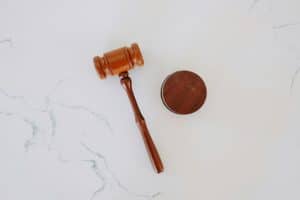Nursing home abuse is a tragedy that can severely harm or claim the lives of vulnerable senior citizens who are supposedly in a trustworthy community. Nursing home abusers need to be reported to authorities like the police and community managers. Nursing home abuse can come in many forms, like physical, verbal, sexual, or even financial. If you’re planning on pressing charges for abuse in a nursing home, you’ll need to have evidence on hand to back up claims. Evidence can come in many forms.
Photos
Photograph any evidence that can confirm the abuse, like injuries or property damage. Take photos from multiple angles of all injuries on the body. Photos can be some of the most convincing evidence to prove abuse. If the abuse was due to neglect, you can usually showcase dramatic weight loss, bed sores, or signs of malnutrition in a photograph. It can help if you have previous photos that show their original healthy weight, too.
Videos
If you have video footage of abuse or theft occurring, hold onto it. Some people set up cameras to record interactions with a senior loved one to protect them. Videos showcasing injuries further can also be beneficial, especially regarding weight loss or bed sores due to neglect. A recording of the victim’s personal account of the abuse may be helpful if the victim has memory conditions. An attorney can help guide you on what types of videos may be ideal for evidence.
Audio
If you have any tapes or recordings of verbal abuse or theft, audio can be a great way to prove it occurred. Hold onto any audio recordings you may have. While recorded audio may not be allowed as evidence in court without the subject’s consent, it can be a way to establish an abuse case.
Medical Records
If your senior loved one gets treatment or testing for physical, mental, or sexual abuse, medical records can show when and how the treatment occurred. You’ll want to note if medical records state dramatic weight loss, broken bones, bruises, cuts, scrapes, or other injuries. Make copies of medical records and ensure they show any testing, diagnosis, medical history, and medications needed. Including the cost of treatment and medication can also be beneficial when pursuing litigation.
Billing Statements
Some financial abuse comes in the form of bills from the nursing home or fake documents disguised as nursing home bills to trick seniors into giving more money. Hold onto all billing statements, including medical bills, especially if they seem fishy. Make copies of these statements for safekeeping.
Incident Reports
When you file a complaint with the police and nursing home about suspected abuse, you’ll usually receive a police report documenting the complaint and what was done about it. The nursing home will usually file incident reports as well. You’ll want copies of these incident reports, especially if the nursing home has several incidents under the victim’s file.
Insurance Claim Documents
If abuse results in needing medical or life insurance claims, you’ll want to retain copies of all insurance documentation, even if you receive a denial. An attorney can help you appeal denials and use insurance claim documents as evidence if necessary.
Other Documentation
If any other documentation was created due to the abuse, you should make copies and keep them in a safe place. Documentation can serve as valuable evidence in court to prove abuse. Attorneys can also help recover additional documentation.
Personal Accounts
If the victim can provide a written statement or has made journal entries describing the abuse, this can serve as evidence. Keep journal entries or written statements in a safe place, and consider making copies. An attorney may want to hold onto them to use if necessary.
Witness Testimonies
Anyone who observed the nursing home abuse can provide a statement to attest to it. The victims themselves, if able, can also give a witness statement of their abuse. Witnesses can also be experts in the field of medicine, abuse, or nursing home communities to offer their opinions on whether abuse or negligence occurred. Witness testimonies can provide essential, relevant information during a trial. A nursing home abuse lawyer will help you document and gather witness testimonies, particularly if expert testimonies are needed.
Conclusion
Gathering evidence is one of the most important aspects of proving nursing home abuse occurred. Since abuse can come in the form of physical, verbal, sexual, or financial, there are many ways to document this abuse. Police reports, photos, videos, audio recordings, witness testimonies, and medical records are some of the most popular ways to prove that abuse occurred. However, other evidence, like expert witness testimonies, billing statements, or insurance claim statements, can also serve as valuable evidence. If you work with an attorney, they can help you gather the proper evidence to prove and verify abuse claims.
Interlinking Opportunities
From (https://nitkinlaw.com/achieving-success-in-court-strategies-from-experienced-civil-litigation-attorneys/) with the anchor documenting nursing home abuse
From (https://nitkinlaw.com/how-to-prove-your-accomplishments-a-guide-to-gathering-and-presenting-evidence-for-an-eb-1-visa-application/) with the anchor evidence in abuse cases


